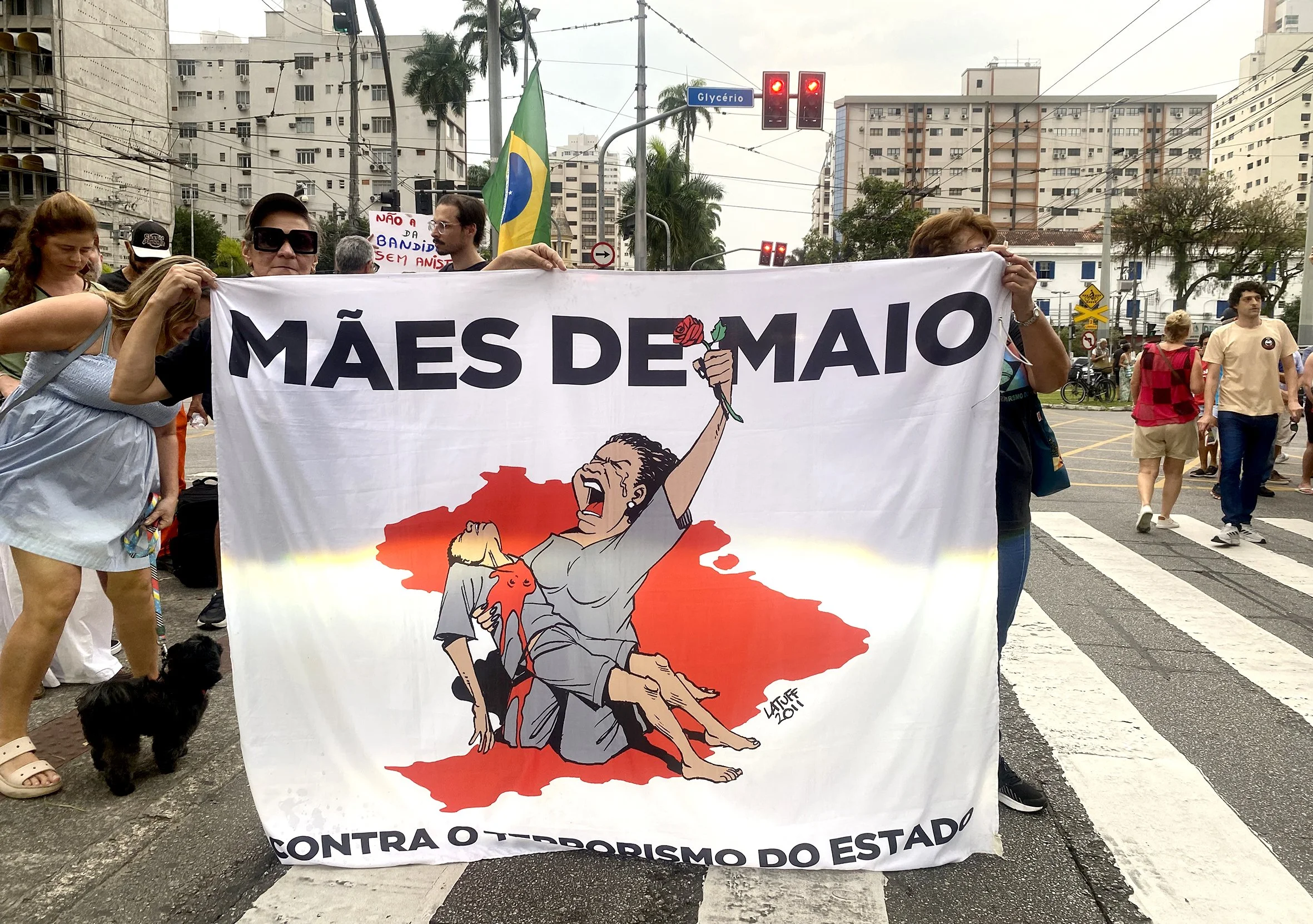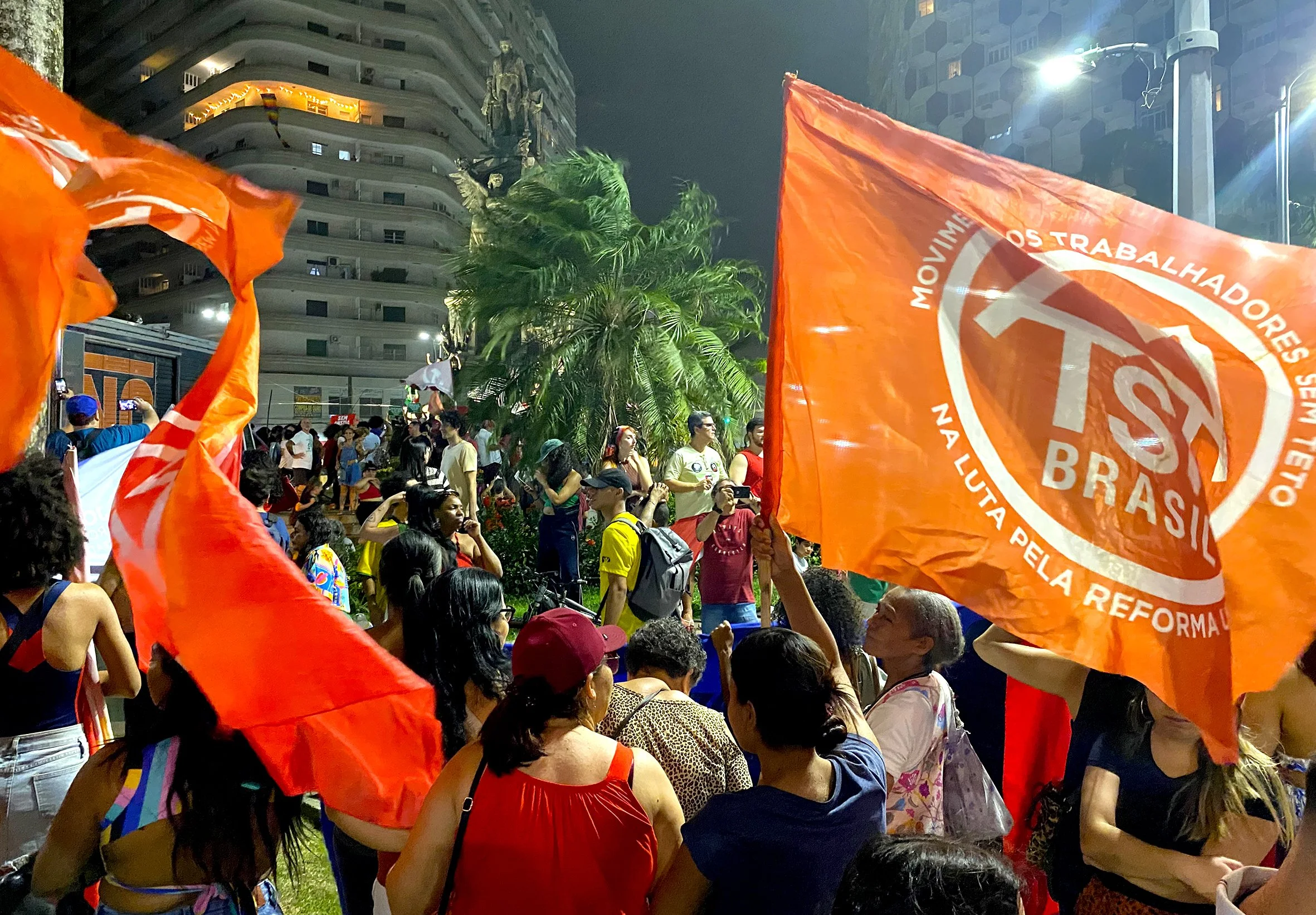No Amnesty for Bandit Politicians
Santos. Sunday, September the 21st, 2025. In thirty-three cities across the length and breadth of Brasil, there were stirrings of revolt, as vast numbers gave up a lazy afternoon to demonstrate in the streets. There were two principal catalysts behind the protests. First, widespread anger at the campaign orchestrated by the far right and evangelical church to grant a general amnesty to everyone involved in the violent assault on Congress in January 2023. Second, indignation at the vote last week by a majority of Deputies to amend the constitution in a way that would potentially protect them from criminal prosecution. Despite the ongoing and determined attempt by the far right to subvert democracy, a clear majority of the population supports the Supreme Court’s judgement that Bolsonaro and his allies are guilty of plotting a coup d'état and of being involved in a criminal conspiracy. The evidence is overwhelming and they could all face long jail sentences. Equally, there has been an almost universal condemnation of the proposal to change the constitution, referred to as the PEC da Blindagem. In a world in which gangster capitalism and mafia states have become normalised, politicians behaving in their own self-interest shocks no one. But by any measure, the abandonment of any pretence to the democratic process in the PEC da Blindagem was extraordinary. It proposed that with the exception of acts of terrorism, trafficking and torture, federal deputies and senators could only be arrested and prosecuted by the Supreme Court (STF) if their colleagues in Congress agreed by an absolute majority in a secret ballot. Self-evidently corrupt, the scheme was designed to protect State and Federal Deputies from the dozens of Federal Police and Supreme Court investigations into the embezzlement of public money. Today the proposal has been unanimously denounced by the Senate that argued that it would have opened the doors of Congress to organised crime and destroyed the legitimacy of Parliament. The Senate also clearly bowed to the collective display of public outrage both on the streets and in social media. I suspect however that this is not the end of the story. It is not the first time that the far right has attempted a juridical coup. They tried before in 2001, and then, as now, they were defeated by the strength of popular protest. This is why demonstrations like the one on Sunday are so important. They offer hope that this time round the rules have changed. The formerly red city of Santos was never going to be able to mobilise the size of crowds as seen in São Paulo and Rio de Janeiro, but there was a great turnout, and importantly from across the political spectrum. Lots of banners, speeches, home-made placards such as, “Whoever defends an amnesty for coup mongers and protection for elected bandits is betraying democracy,” and spontaneous songs: “Sem anistia, sem perdão, todos as golpistas para a prisão.” (No amnesty, no pardon, jail all the coup plotters.) Here are a few images from the day as we marched down the Avenida Anna Costa to the Praça da Independência. The first photo is of me with close family friends. You might note the T-Shirt, “Santista Antifascista.” It is odd to think, that in the eyes of US law enforcement officers, wearing this probably makes me a terrorist.



